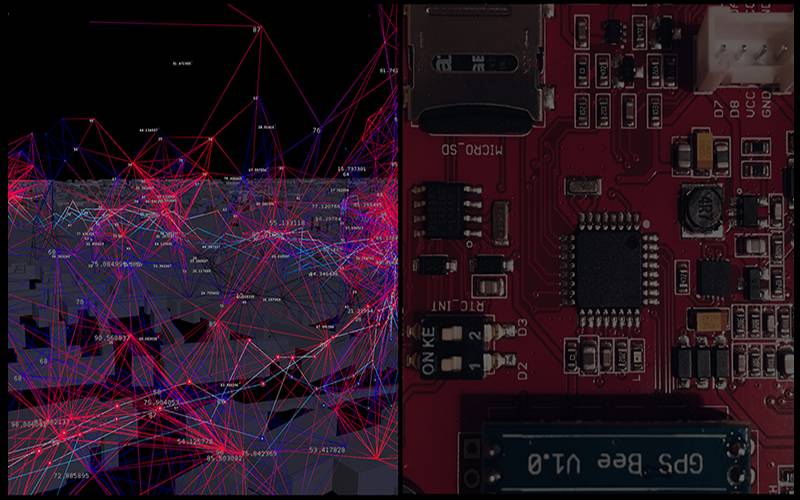 Research
Research

Subject
Transindividual Urbanism: Novel Territories of Participatory Practices
First and second supervisors
Abstract
Like an omen, ubiquitous computing has carried the general expectation for new forms of distributed authorship and pervasive co-creative processes. Particularly, it is when we consider the impact of distributed technologies at the urban scale, that it appears how participatory ideas require considerations that are not only technical and material, but that also entail the political and philosophical dimension of collective intelligence. Drawing on the work of Bateson, Simondon, and other early cyberneticians the project offers an ecological and materialist perspective to ideas of digital participation. In particular, it presents a discussion of Gilbert Simondon’s L'individuation Psychique et Collective (1958), a contribution of the French philosopher unfortunately only fragmentally translated to English. Here, Simondon describes the individuation of the collective subject as an ontogenetic and metastatic process moved by psychological and affective events producing the transindividual, thus offering a biological interpretation of the social process of becoming and a reconceptualization of ideas of knowledge and distribution of information.
Transindividual Urbanism formulates a design-research practice that uses historical research, participatory urban analysis and design speculations to explore the aesthetical, technological and cultural dimension of transindividuality as a generative model of collective authorship. Drawing on a body of early cybernetic works and more recent environmental and bio-metric sensing projects embodying different ideas of metastatic adaptation, the research examines three main trajectories. A Metastatic Materialities path explores the genesis of adaptive metabolic materials and the multi-layered potential of animate matter; a Metastatic Mediality section looks at the evolution of the technological support for the collective project and its multi-scalar reach; a Metastatic Affectivities curve explores intersubjectivity and issues of equality through expanded modes of de-construction and re-construction of the collective agency. By opening up the digital participatory scholarship to ecological and post-humanist theory, the project intends to offer a better understanding of the complex nature of collective feedback, creating the potential for the affirmation of novel mediated urban narratives, aesthetics and forms of bottom-up politics.
Biography
Annarita Papeschi is an architect and a researcher with an Architecture MArch from the University of Florence and a second MArch from the Architectural Association. She is co-founder and director of the architectural and urban design practice Flow Architecture and was previously a Lead Architect at Zaha Hadid Architects.
Her research examines the broad intersection of computational design and participatory processes. Within a post-humanist and ecological perspective her work questions current urban co-creative practices and explore the disruptive potential of environmental and biometric sensing for distributed authorship and pervasive co-creation. Previously she has taught at Kent School of Architecture and A&L Greenwich and is currently a History & Theory Tutor on the Urban Design MArch at The Bartlett School of Architecture, UCL.
Image: The HeartBit Walks, Flow Architecture, 2018
 Close
Close

